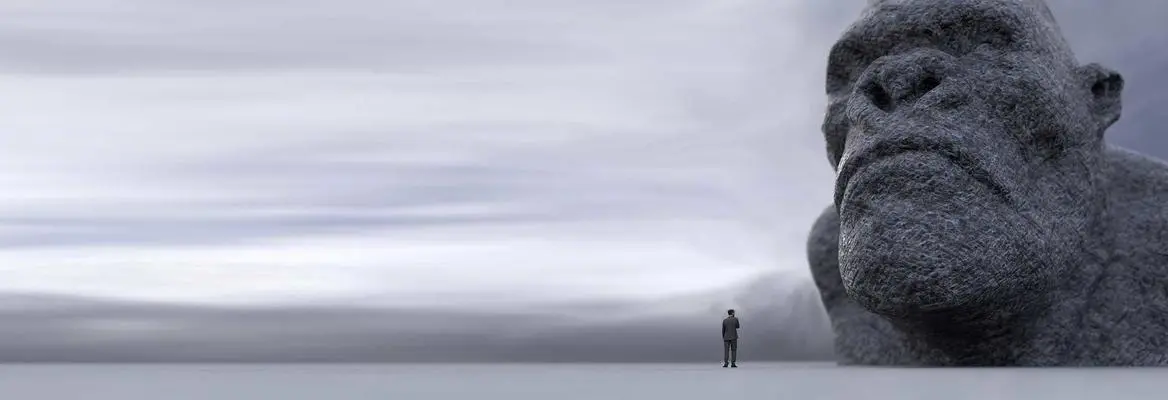The overwhelmingly validated theory of evolution tells us that the functions performed by our organs arose from associated increases in survival fitness. For instance, the bile produced by our liver and the insulin produced by our pancreas help us absorb nutrients and thus survive. Insofar as it is produced by the brain, our phenomenal consciousness—i.e. our ability to subjectively experience the world and ourselves—is no exception: it, too, must give us some survival advantage, otherwise natural selection wouldn’t have fixed it in our genome. In other words, our sentience—to the extent that it is produced by the brain—must perform a beneficial function, otherwise we would be unconscious zombies.
One problem with this is that, under the premises of materialism, phenomenal consciousness cannot—by definition—have a function. According to materialism, all entities are defined and exhaustively characterised in purely quantitative terms. For instance, elementary subatomic particles are exhaustively characterised in terms of e.g. mass, charge and spin values. Similarly, the behaviour of abstract fields is fully defined in terms of quantities, such as frequencies and amplitudes of oscillation. Particles and fields, in and of themselves, have quantitative properties but no intrinsic qualities, such as colour or flavour. Only our perceptions of them—or so the materialist argument goes—are accompanied by qualities somehow generated by our brain.
Materialism posits that the quantities that characterise physical entities are what allow them to be causally efficacious; that is, to produce effects. For instance, it is the charge values of protons and electrons that produce the effect of their mutual attraction. In nuclear fission reactors, it is the mass value of neutrons that produces the effect of splitting atoms. And so on. All chains of cause and effect in nature must be describable purely in terms of quantities. Whatever isn’t a quantity cannot be part of our physical models and therefore—insofar as such models are presumed to be causally-closed—cannot produce effects. According to materialism, all functions rest on quantities.
Our phenomenal consciousness is eminently qualitative, not quantitative. There is something it feels like to see the colour red, which is not captured by merely noting the frequency of red light.
However, our phenomenal consciousness is eminently qualitative, not quantitative. There is something it feels like to see the colour red, which is not captured by merely noting the frequency of red light. If we were to tell Helen Keller that red is an oscillation of approximately 4.3*1014 cycles per second, she would still not know what it feels like to see red. Analogously, what it feels like to listen to a Vivaldi sonata cannot be conveyed to a person born deaf, even if we show to the person the sonata’s complete power spectrum. Experiences are felt qualities—which philosophers and neuroscientists call ‘qualia’—not fully describable by abstract quantities.
But as discussed above, qualities have no function under materialism, for quantitatively-defined physical models are supposed to be causally-closed; that is, sufficient to explain every natural phenomenon. As such, it must make no difference to the survival fitness of an organism whether the data processing taking place in its brain is accompanied by experience or not: whatever the case, the processing will produce the same effects; the organism will behave in exactly the same way and stand exactly the same chance to survive and reproduce. Qualia are, at best, superfluous extras.















Join the conversation